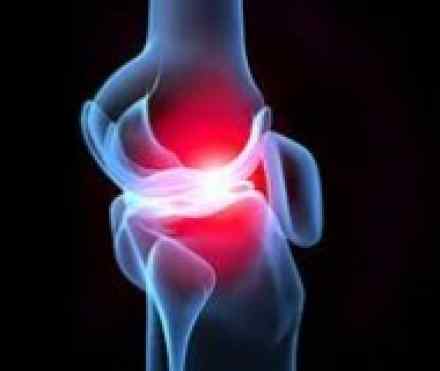
What is it?
- Addison's disease is a disorder that results when your body produces insufficient amounts of certain hormones produced by your adrenal glands. In Addison's disease, your adrenal glands produce too little cortisol, and often insufficient levels of aldosterone as well.
- Also called adrenal insufficiency or hypocortisolism, Addison's disease can occur at any age, but is most common in people ages 30 to 50. Addison's disease can be life-threatening.
- Treatment for Addison's disease involves your taking hormones to replace the insufficient amounts being made by your adrenal glands, in order to mimic the beneficial effects those naturally made hormones would normally produce.
Symptoms
Addison's disease symptoms usually develop slowly, often over several months, and may include:
- Muscle weakness and fatigue
- Weight loss and decreased appetite
- Darkening of your skin (hyperpigmentation)
- Low blood pressure, even fainting
- Salt craving
- Low blood sugar (hypoglycemia)
- Nausea, diarrhoea or vomiting
- Muscle or joint pains
- Irritability
- Depression
Acute adrenal failure (addisonian crisis) Sometimes, however, the signs and symptoms of Addison's disease may appear suddenly. In acute adrenal failure (addisonian crisis), the signs and symptoms may also include:
- Pain in your lower back, abdomen or legs
- Severe vomiting and diarrhoea, leading to dehydration
- Low blood pressure
- Loss of consciousness
- High potassium (hyperkalemia)
What Causes Addison's disease?
Your adrenal glands are located just above each of your two kidneys. These glands are part of your endocrine system, and they produce hormones that give instructions to virtually every organ and tissue in your body.
Your adrenal glands are composed of two sections. The interior (medulla) produces adrenaline-like hormones. The outer layer (cortex) produces a group of hormones called corticosteroids, which include glucocorticoids, mineralocorticoids and male sex hormones (androgens).
Some of the hormones the cortex produces are essential for life — the glucocorticoids and the mineralocorticoids.
- Glucocorticoids. These hormones, which include cortisol, influence your body's ability to convert food fuels into energy, play a role in your immune system's inflammatory response and help your body respond to stress.
- Mineralocorticoids. These hormones, which include aldosterone, maintain your body's balance of sodium and potassium and water to keep your blood pressure normal.
Primary adrenal insufficiency
Addison's disease occurs when the cortex is damaged and doesn't produce its hormones in adequate quantities. Doctors refer to the condition involving damage to the adrenal glands as primary adrenal insufficiency.
The failure of your adrenal glands to produce adrenocortical hormones is most commonly the result of the body attacking itself (autoimmune disease). For unknown reasons, your immune system views the adrenal cortex as foreign, something to attack and destroy.
Other causes of adrenal gland failure may include:
- Tuberculosis
- Other infections of the adrenal glands
- Spread of cancer to the adrenal glands
- Bleeding into the adrenal glands
Secondary adrenal insufficiency
Adrenal insufficiency can also occur if your pituitary gland is diseased. The pituitary gland makes a hormone called adrenocorticotropic hormone (ACTH), which stimulates the adrenal cortex to produce its hormones. Inadequate production of ACTH can lead to insufficient production of hormones normally produced by your adrenal glands, even though your adrenal glands aren't damaged. Doctors call this condition secondary adrenal insufficiency.
Another more common possible cause of secondary adrenal insufficiency occurs when people who take corticosteroids for treatment of chronic conditions, such as asthma or arthritis, abruptly stop taking the corticosteroids.
Addisonian crisis
If you have untreated Addison's disease, an addisonian crisis may be provoked by physical stress, such as an injury, infection or illness.
Treatments and drugs
All treatment for Addison's disease involves hormone replacement therapy to correct the levels of steroid hormones your body isn't producing. Some options for treatment include:
- Oral corticosteroids. Your doctor may prescribe fludrocortisones (Florinef) to replaces aldosterone. Hydrocortisone (Cortef), prednisone or cortisone acetate may be used to replace cortisol.
- Corticosteroid injections. If you're ill with vomiting and can't retain oral medications, injections are an option.
- Androgen replacement therapy. To treat androgen deficiency in women, dehydroepiandrosterone can be prescribed. Some studies suggest that this therapy may improve overall sense of well-being, libido and sexual satisfaction.
An ample intake of sodium is recommended, especially during heavy exercise, when the weather is hot, or if you have gastrointestinal upsets, such as diarrhoea. Your doctor will also suggest a temporary increase in your dosage if you're facing a stressful situation, such as an operation, an infection or a minor illness.
Addisonian crisis
An addisonian crisis is a life-threatening situation that results in low blood pressure, low blood levels of sugar and high blood levels of potassium. This situation requires immediate medical care. Treatment typically includes intravenous injections of:
- Hydrocortisone
- Saline solution
- Sugar (dextrose)
Coping and support
These steps may help you cope better with a medical emergency if you have Addison's disease:
- Carry a medical alert card and bracelet at all times. In the event you're incapacitated, emergency medical personnel know what kind of care you need.
- Keep extra medication handy. Because missing even one day of therapy may be dangerous, it's a good idea to keep a small supply of medication at work, at a vacation home and in your travel bag, in the event you forget to take your pills. Also, have your doctor prescribe a needle, syringe and injectable form of corticosteroids to have with you in case of an emergency.
- Stay in contact with your doctor. Keep an ongoing relationship with your doctor to make sure that the doses of replacement hormones are adequate but not excessive. If you're having persistent problems with your medications, you may need adjustments in the doses or timing of the medications.
References:
http://www.medicinenet.com/addison_disease/article.htm
http://en.wikipedia.org/wiki/Addison's_disease
http://www.mayoclinic.com/health/addisons-disease/DS00361
http://www.nhs.uk/conditions/Addisons-disease/Pages/Introduction.aspx
http://www.nlm.nih.gov/medlineplus/ency/article/000378.htm
http://www.endocrine.niddk.nih.gov/pubs/addison/addison.aspx

